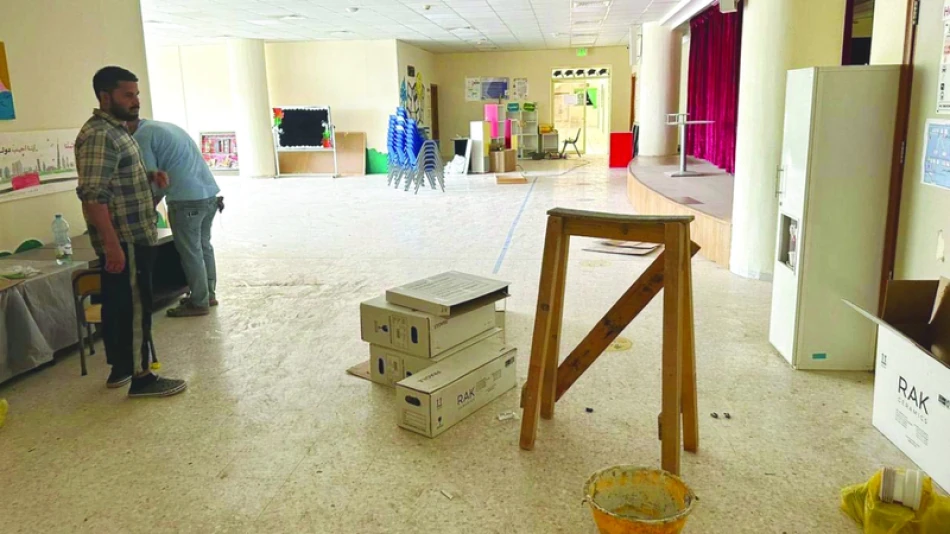
Schools Reopen with Workshops, Maintenance Takes Center Stage for Back-to-School Preparations
UAE Private Schools Race Against Time as Infrastructure Overhauls Threaten Academic Year Start
With just days before the 2024-2025 academic year begins on August 25, private schools across the UAE are scrambling to complete extensive maintenance and infrastructure upgrades. Some institutions are even considering remote learning for the first week if critical repairs aren't finished in time, highlighting the scale of work required to meet modern educational standards.
Beyond Basic Maintenance: A Strategic Infrastructure Revolution
What's happening in UAE schools represents more than routine summer cleaning. School administrators describe a comprehensive transformation involving air conditioning overhauls, security system upgrades, classroom technology refreshes, and complete renovation of basic facilities like bathrooms and outdoor spaces.
Salma Eid, director of a private school, explained that preparations encompass "comprehensive maintenance of air conditioning systems, inspection of security and safety systems, updating classroom equipment, and renovating infrastructure facilities." This systematic approach reflects the UAE's broader push toward world-class educational environments that can compete globally for international families.
Predictive Maintenance Enters the Classroom
Dubai Modern School director Khaled Abdel Hamid emphasized that "the concept of school maintenance has moved beyond seasonal cleaning to an integrated strategic vision aimed at providing an environment that stimulates learning and growth." Schools are now implementing predictive maintenance using technical tools to detect problems before they occur—a approach borrowed from industrial and commercial real estate sectors.
The Economics of Educational Excellence
This infrastructure investment surge comes as UAE private schools face intensifying competition for enrollment, particularly from international families who expect facilities matching global standards. The timing pressure also reveals operational challenges: schools must balance significant capital expenditure during summer months with the risk of delayed academic starts.
Walid Fouad Lafi, director of administrative affairs at Al Ahlia Schools Group, noted that effective maintenance doesn't begin in summer but requires year-round planning. His group has adopted institutional approaches including annual maintenance plans, process documentation, and training technicians on smart facility management systems (CMMS) for digital monitoring and tracking.
Remote Learning as Contingency Planning
The willingness to implement remote learning during the first week demonstrates how COVID-19 permanently altered educational flexibility. Schools can now pivot to digital delivery without the stigma or logistical challenges that existed pre-2020, providing a safety valve for infrastructure delays while maintaining academic schedules.
Regional Context: UAE's Educational Competitiveness Strategy
This infrastructure push aligns with the UAE's broader strategy to position itself as a regional education hub, competing with established centers like Singapore and emerging rivals like Saudi Arabia's NEOM educational projects. The emphasis on predictive maintenance and smart facility management reflects the country's smart city initiatives and technological adoption across sectors.
Educational experts stress that maintenance success isn't measured by completion speed alone, but by long-term effectiveness. They emphasize the importance of regular evaluation mechanisms using clear performance indicators that measure execution quality, cost efficiency, and impact on student comfort and educational continuity.
Market Implications for Educational Investment
For investors and educational service providers, this trend signals growing demand for facility management technology, predictive maintenance solutions, and educational infrastructure services in the Gulf region. The integration of CMMS systems and digital monitoring tools suggests a maturing market for EdTech solutions beyond traditional classroom technology.
The scale of simultaneous upgrades across multiple emirates also indicates robust financial health in the private education sector, despite global economic uncertainties, positioning UAE schools for continued growth in international student recruitment.
Most Viewed News

 Sara Khaled
Sara Khaled






